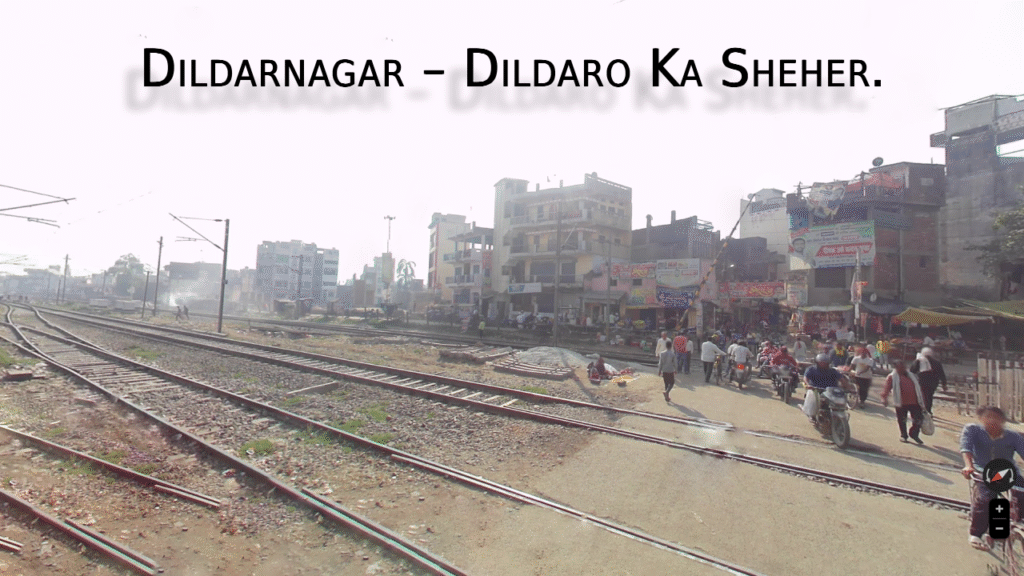
Dildarnagar is a small but biggest and busiest town in the Ghazipur district of eastern Uttar Pradesh. Located close to the Ganges River and well-connected by road and railway, the town plays a key role in the daily life of people from nearby villages and areas specially kamsar villages. It may not be as well-known as big cities, but Dildarnagar has its own unique charm — built on history, culture, and strong local spirit.
The heart of the town is the Dildarnagar Bazar. This market is always full of life — with fruit sellers, fast-food stalls, grocery shops, clothing stores, and small traders all working side by side. It’s the main place for shopping, business, and meeting people. Many people from nearby villages come to this market to buy or sell goods, making it a busy and important part of the local economy.
The story of Dildarnagar goes back several centuries. It is believed that the town was started by a Rajput noble, Kunwar Naval Singh, who later accepted Islam and took the name Raja Deendar Khan. From this, the name Dildarnagar was formed.
Dildarnagar is also known for its tasty local food. Popular snacks include hot samosas with chutney, sweet gulab jamuns, rasmalai, and the winter favorite — gajar ka halwa. But the real star is the golgappa (pani puri) — filled with spicy, tangy water that people love. Street food in the town is affordable, fresh, and full of flavor.
Dildarnagar Junction (station code: DLN) is one of the most important railway stations in eastern Uttar Pradesh. Located in Dildarnagar town in Ghazipur district, this station plays a major role in connecting the town to other parts of the state and country. It is not just a place where trains stop — it is a central part of daily life for thousands of people. It lies on the Howrah–Delhi main line, which is one of the busiest and most important railway routes in India. The station connects to major cities like Varanasi, Patna, Delhi, Kolkata, Gorakhpur, Mughalsarai (Pt. Deen Dayal Upadhyay Junction), and many more. Because of this, the junction is used not only by local people but also by travelers from nearby towns and villages. Several express and passenger trains stop at Dildarnagar Junction every day. These include popular trains like: Magadh Express, Vikramshila Express, Brahmaputra Mail, Poorva Express, Howrah–Amritsar Mail(Punjab mail). In addition to express trains, many local passenger trains run between Dildarnagar and nearby stations like Buxar, Gahmar, Ghazipur, Mughalsarai, Varanasi, and Zamania, making travel easier for daily passengers and students.